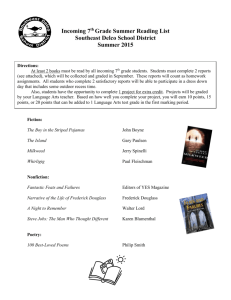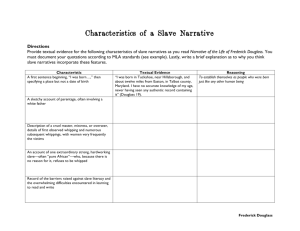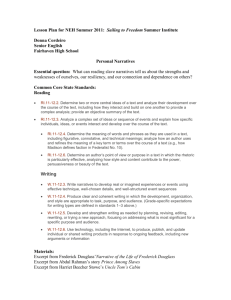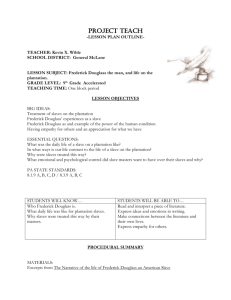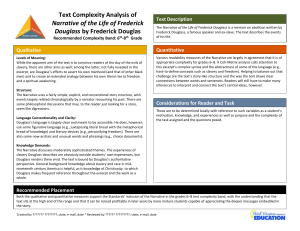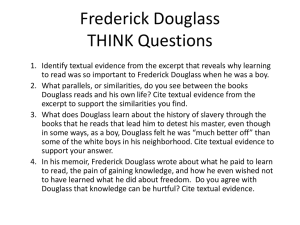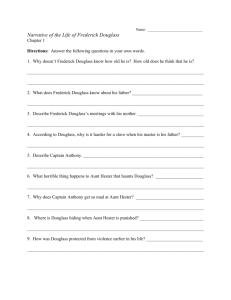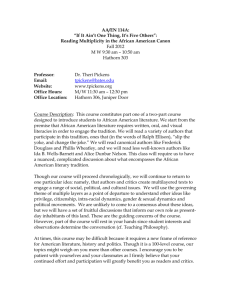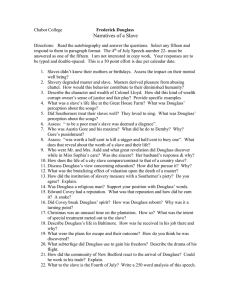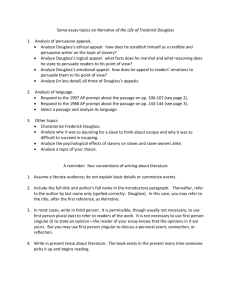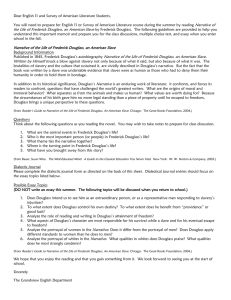frederick douglass, narrative of the life of frederick douglass, an
advertisement
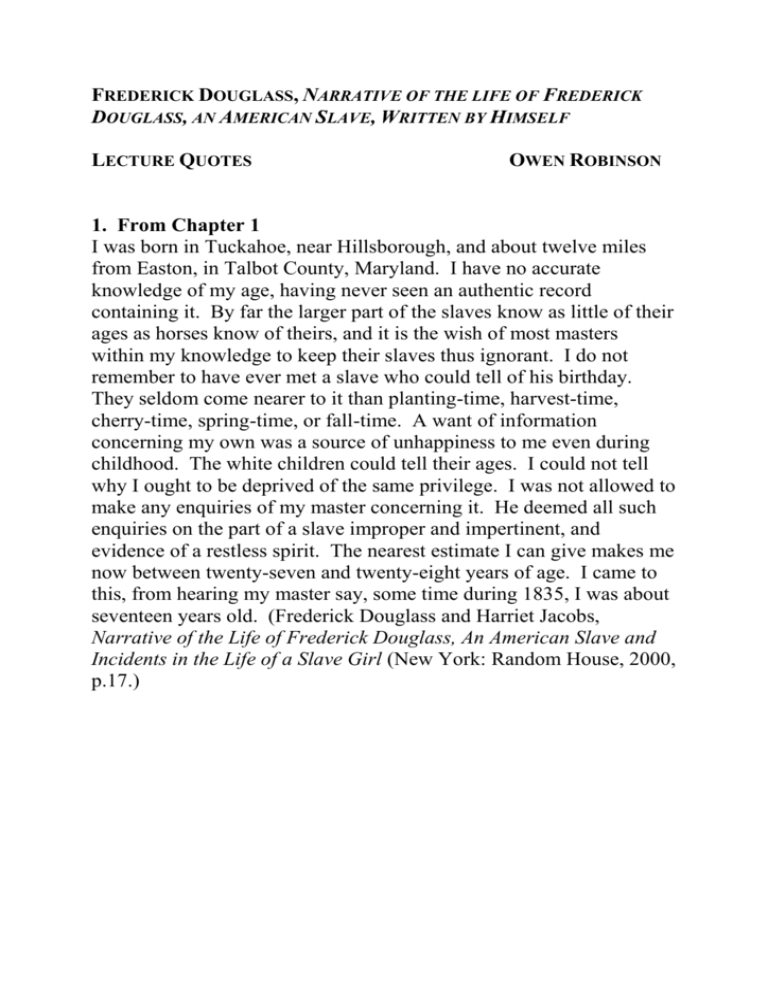
FREDERICK DOUGLASS, NARRATIVE OF THE LIFE OF FREDERICK DOUGLASS, AN AMERICAN SLAVE, WRITTEN BY HIMSELF LECTURE QUOTES OWEN ROBINSON 1. From Chapter 1 I was born in Tuckahoe, near Hillsborough, and about twelve miles from Easton, in Talbot County, Maryland. I have no accurate knowledge of my age, having never seen an authentic record containing it. By far the larger part of the slaves know as little of their ages as horses know of theirs, and it is the wish of most masters within my knowledge to keep their slaves thus ignorant. I do not remember to have ever met a slave who could tell of his birthday. They seldom come nearer to it than planting-time, harvest-time, cherry-time, spring-time, or fall-time. A want of information concerning my own was a source of unhappiness to me even during childhood. The white children could tell their ages. I could not tell why I ought to be deprived of the same privilege. I was not allowed to make any enquiries of my master concerning it. He deemed all such enquiries on the part of a slave improper and impertinent, and evidence of a restless spirit. The nearest estimate I can give makes me now between twenty-seven and twenty-eight years of age. I came to this, from hearing my master say, some time during 1835, I was about seventeen years old. (Frederick Douglass and Harriet Jacobs, Narrative of the Life of Frederick Douglass, An American Slave and Incidents in the Life of a Slave Girl (New York: Random House, 2000, p.17.) 2. William Lloyd Garrison, from his Preface to Douglass Mr. DOUGLASS has very properly chosen to write his own Narrative, in his own style, and according to the best of his ability, rather than to employ some one else. It is, therefore, entirely his own production; and, considering how long and dark was the career he had to run as a slave, – how few have been his opportunities to improve his mind since he broke his iron fetters, – it is, in my judgment, highly creditable to his head and heart….I am confident that it is essentially true in all its statements; that nothing has been set down in malice, nothing exaggerated, nothing drawn from the imagination; that it comes short of the reality, rather than overstates a single fact in regard to SLAVERY AS IT IS. (William Lloyd Garrison, ‘Preface,’ in Douglass, pp.7-8.) 3. Henry Louis Gates, Jr., quote “For all sorts of complex historical reasons, the very act of writing has been a ‘political act’ for the black author. Even our most solipsistic texts, at least since the Enlightenment in Europe, have been treated as political evidence of one sort or another both implicitly and explicitly. And because our life in the West has been one struggle after another, our literature has been defined from without, and rather often from within, as primarily just one more polemic in those struggles.” (Henry Louis Gates, Jr., ‘Criticism in the Jungle’ in Black Literature and Literary Theory (New York: Methuen, 1984), quoted in Valerie Smith, Self-Discovery and Authority in Afro-American Literature (Cambridge, MA: Harvard University Press, 1987), p.11). 4. From the Appendix Sincerely and earnestly hoping that this little book may do something toward throwing light on the American slave system, and hastening the glad day of deliverance to the millions of my brethren in bonds – faithfully relying upon the power of truth, love, and justice, for success in my humble efforts – and solemnly pledging myself anew to the sacred cause, – I subscribe myself, FREDERICK DOUGLASS (Douglass, pp.112-3). Some other relevant primary texts: Olaudah Equiano, The Interesting Narrative of the Life of Olaudah Equiano, or Gustavus Vassa, the African, published 1789. Harriet Jacobs, Incidents in the Life of a Slave Girl, published 1861. David Walker, David Walker’s Appeal
